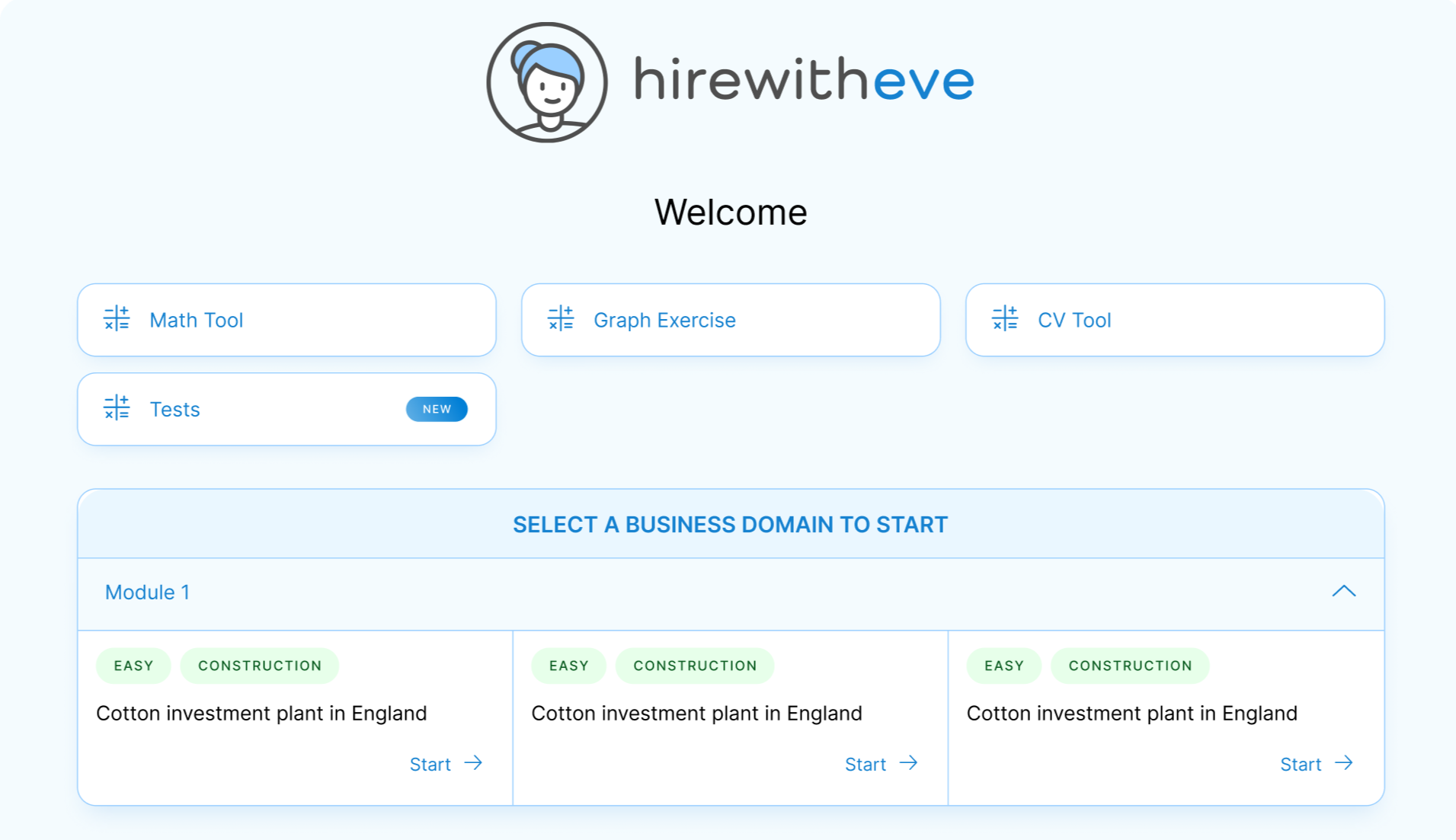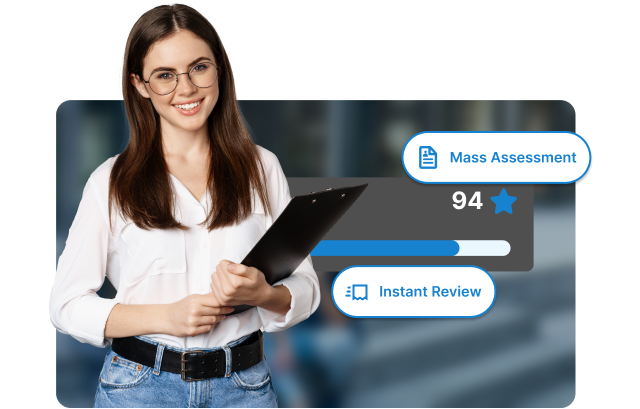Interview Training for Your Staff: Tips and Strategies

In today’s fast-paced hiring landscape, interview training has become a crucial part of talent acquisition strategies. For talent acquisition specialists and HR managers, ensuring that their teams are equipped with the right interview skills is essential. Interview Training for Your Staff not only enhances the interview process but also ensures that the right candidates are identified and selected. This blog will explore the key strategies and tips to develop effective interview training programs, helping HR teams consistently improve their interviewing techniques and reduce hiring errors.
Table of contents
Introduction
Interviewing is a critical skill for HR teams and hiring managers. It’s more than just asking questions; it's about identifying a candidate’s potential, skills, and cultural fit. Unfortunately, many organizations struggle with a standardized interview process, leading to inconsistent hires and increased turnover. Interview Training for Your Staff can help eliminate these challenges by equipping your team with the skills and knowledge needed to conduct effective interviews. Training staff to interview properly will result in better hiring decisions, a smoother candidate experience, and ultimately, a stronger workforce.
The Importance of Interview Training for Your Staff
Why should Interview Training for Your Staff be a top priority? First and foremost, interviews are where the majority of hiring decisions are made. If your HR staff or hiring managers are not prepared to assess candidates properly, you risk making poor hiring decisions that could impact the company’s productivity and culture. Moreover, structured interview training ensures that all interviewers are on the same page, asking relevant, fair, and unbiased questions.
The benefits of Interview Training for Your Staff include:
Consistency: Trained interviewers are more likely to follow a structured format, which leads to more consistent hiring outcomes.
Legal Protection: Properly trained staff can avoid illegal or inappropriate questions, reducing the risk of discrimination claims.
Improved Candidate Experience: Well-prepared interviewers create a smoother and more professional interview process, which leaves candidates with a positive impression of the company.
Better Cultural Fit: Training helps interviewers assess not only technical skills but also whether the candidate aligns with the company’s values and culture.
Key Components of a Successful Interview Training Program
When developing Interview Training for Your Staff, it’s essential to include several key components to ensure its effectiveness. The following elements should be at the core of your training program:
Question Design: Focus on teaching your staff how to create open-ended, behavioral, and situational questions that elicit meaningful responses. Instead of yes/no questions, train your interviewers to ask questions that help candidates demonstrate their problem-solving abilities and thought processes.
Evaluating Answers: It’s not enough to ask good questions; interviewers need to know how to evaluate responses effectively. This involves understanding what a strong answer looks like, how to recognize red flags, and how to assess soft skills such as communication and leadership.
Interview Bias Training: Unconscious biases can easily influence hiring decisions. Including bias awareness training in your Interview Training for Your Staff will help interviewers recognize and mitigate their biases, leading to more objective hiring outcomes.
Active Listening: Active listening is a vital part of any successful interview. Train your staff to focus fully on the candidate’s responses, ask follow-up questions, and seek clarity where needed.
Interview Etiquette and Professionalism: Ensure that your staff understands the importance of professionalism throughout the interview process. This includes punctuality, maintaining a neutral tone, and providing a comfortable environment for the candidate.
Implementing Interview Training for Your Staff: Best Practices
The process of implementing Interview Training for Your Staff should be thorough and ongoing. Here are some best practices to consider:
Tailored Training Programs: Each department may have different hiring needs, so customize the training to reflect the unique requirements of various teams.
Role-Playing: One of the most effective methods for training is to use role-playing exercises. These allow interviewers to practice their skills in a simulated environment before applying them in real interviews.
Feedback and Coaching: Provide regular feedback to interviewers after they’ve completed interviews. Continuous coaching will help refine their skills over time and address any areas for improvement.
Use Technology: Leveraging modern technology can streamline the training process. Virtual training modules, video interviews for practice, and even AI-driven interview simulations can enhance the learning experience for your staff.
Common Mistakes to Avoid in Interview Training
When developing Interview Training for Your Staff, it’s essential to avoid common mistakes that could undermine its effectiveness. These include:
Inadequate Preparation: Don’t rush through the training process. Make sure your staff has ample time to absorb the material and practice their skills before conducting real interviews.
Neglecting Behavioral and Situational Questions: Focus too much on technical skills, and you’ll miss out on assessing critical qualities like problem-solving, communication, and leadership.
One-Size-Fits-All Training: Every role requires a slightly different interview approach, so avoid using the same training across all departments. Tailor the training to specific roles and departments to ensure its effectiveness.
Ignoring Candidate Experience: The interview process is also a reflection of your company’s culture and values. Training interviewers to provide a positive experience for candidates is just as important as assessing their skills.
Continuous Improvement in Interview Training for Your Staff
The best Interview Training for Your Staff is never a one-time event. Ongoing improvement is necessary to keep up with evolving best practices in the field of talent acquisition. Conduct regular assessments of your interview process, solicit feedback from candidates, and continuously update training materials based on new insights and trends.
Moreover, hiring trends and industry demands are always changing, so it’s important to keep your interviewers up to date. Periodically revisit the training program to introduce new techniques, refresh old ones, and ensure that your team is consistently improving.
Conclusion: Why HirewithEve Can Support Your Interview Training Efforts
In conclusion, Interview Training for Your Staff is a vital investment in your hiring process. It ensures that your team is well-equipped to conduct consistent, fair, and effective interviews that lead to better hiring decisions. From structured question design to active listening, there are many aspects to cover in a comprehensive training program.
This is where a platform like HirewithEve can provide significant value. While the focus of this blog has been on the importance of training, the right tools can complement your training efforts. HirewithEve offers features that can support your interview training programs, such as candidate assessment tools, bias reduction technology, and interview analytics. These features ensure that your hiring teams have access to the insights and data needed to improve the interview process, ultimately leading to more successful hires.
By integrating HirewithEve into your talent acquisition strategy, you can streamline the interview process and ensure that your team is making well-informed, objective hiring decisions.
Target Your Talent
Unlock tailored solutions for your recruitment and hiring needs with Eve Platform's extensive case study library.
Subscribe now to enhance your HR expertise and excel in your role.
Free Resources

Transforming Hiring: 7 Key Recruiting Metrics
Enhancing recruitment processes with data-driven insights for better hiring outcomes.

Reducing Hiring Bias with Hirewitheve.
Utilizing Hirewitheve to combat bias and streamline recruitment processes effectively.

Hiring Detail-Oriented Candidates
HirewithEve enhances hiring by accurately assessing candidate's attention to detail-oriented.








